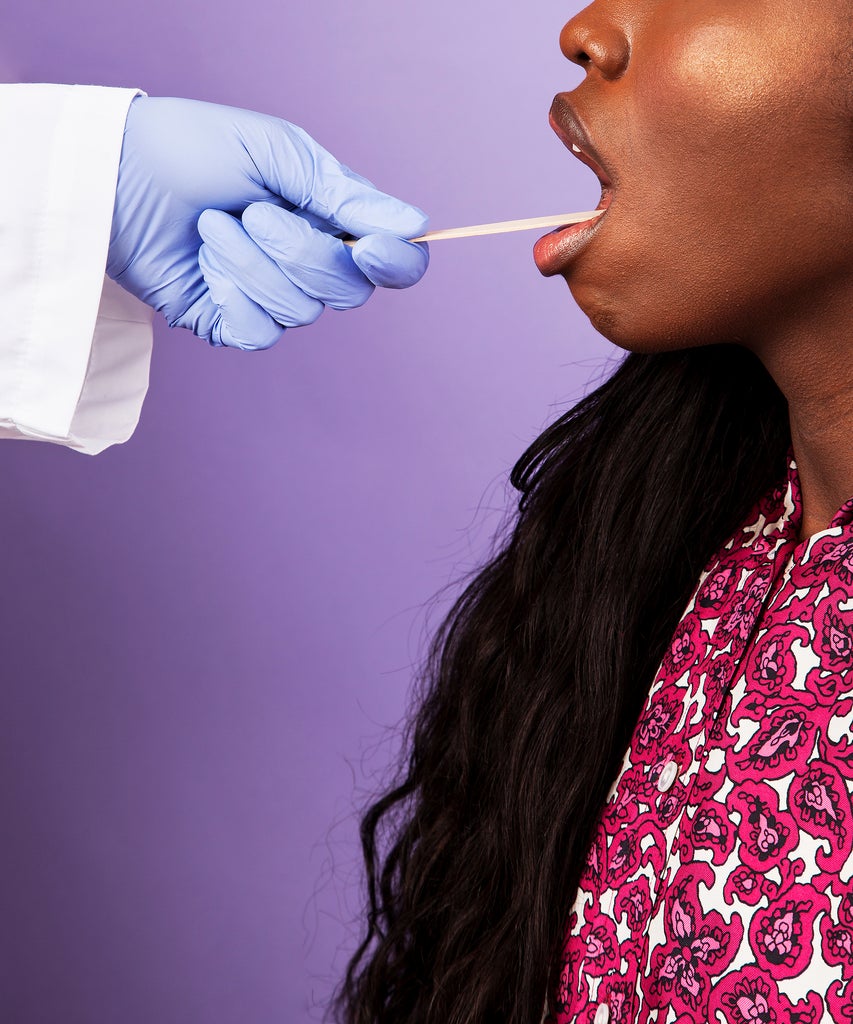
You have a tickle in your throat. Okay, it’s more than a tickle — it’s kind of throbbing. You’re downing tea, popping zinc, and swallowing spoonfuls of manuka honey as fast as you can. You’re hoping that you can soothe the soreness quickly — and that it isn’t a sign of something worse. Like strep.
Of course, the last thing you want to do is to waste time on menthol lozenges and hot drinks when you’ve got strep and only a trip to the doctor and, maybe, prescription meds will cure you. But you also don’t want to disrupt your day by setting up an appointment when you have a normal sore throat. Trouble is, it can be tough to differentiate between the two on your own.
“A sore throat could be from a strep infection, but they also have many other potential causes,” says Elizabeth Roth, M.D., a doctor of internal medicine at Massachusetts General Hospital and an Assistant Professor of Medicine at Harvard Medical School. “Viral infections, allergies, post-nasal drip, and acid reflux are a few possible culprits.”
A “regular sore throat” is usually caused by a virus and typically gets better on its own within a few days. But strep throat is caused by a bacteria, typically lasts longer, and often requires treatment with antibiotics, explains Dr. Nate Favini, M.D. medical lead at Forward, a concierge medical service.
We asked the doctors how to tell if your sore throat is a sign of something more serious, or just an annoying symptom that’ll pass on its own.
How can I tell the difference between a sore throat and strep throat?
Look for other red-flag symptoms. “Some signs that your sore throat is caused by strep include fever, swollen lymph nodes in your neck, and white patches on your tonsils along with your symptoms,” Favini says.
If you have any of these warning signs in addition to throat pain, head to your doctor, Roth suggests. But, Favini adds, “If you have a cough, runny nose, sneezing, and watery eyes, a viral cause is more likely.”
Another sign to get checked out? A very sore throat. People who have strep often describe feeling like there are “glass shards in the back of their throat, making it painful to swallow,” Roth says. Everyone experiences aches differently, though, so if you have other indicators of strep, especially a fever, it’s worth a trip to the doctor — even if your throat is only mildly sore.
Err on the side of caution. Some symptoms that seem to point to strep can also be signs of other health issues you’d want a doctor to treat. “Gonorrhea can be confused with strep throat because the symptoms may be similar,” Favini says. “Mononucleosis, which is transmitted via saliva, can cause a sore throat that seems similar to strep, but is typically accompanied by severe fatigue.”
In general, strep is most common among children from five to 15 years old, the Centers For Disease Control and Prevention notes, but adults get it too — especially those who often come into contact with children.
Should I treat a sore throat differently than strep throat?
“Viral sore throats are treated with supportive care, including rest, hydration, and medications like Tylenol to help with the symptoms until your body can heal,” Favini says. “I typically up my dose of vitamin C to 3,000 milligrams per day when I have a viral infection to give my immune system a boost.”
The course of action for strep is usually more involved, Roth says. First, a doctor will likely do an unpleasant, but necessary, “rapid strep test.” (You know — the uncomfortably throat swab.) If it comes back positive, you’ll be treated with antibiotics, generally penicillin. This will help you recover, and prevent some complications. Untreated strep can cause abscesses near your tonsils, and in some extreme cases, rheumatic fever (what Beth March in Little Women had), which can eventually damage your heart valves.
So should I go to the doctor for my sore throat?
If you have a fever, swelling in your neck, white spots in your throat, or a rash with your sore throat, the answer is yes. Sometimes you should even go if your symptoms seem to indicate a bacterial infection, especially if those symptoms persist longer than a couple of days. As Favini puts it: “When in doubt, it’s better to see a doctor to be safe.”
Related Content:
Like what you see? How about some more R29 goodness, right here?
How To Watch The Kobe Bryant Salute On Real Sports
How To Deal With A Dry Scalp This Winter






